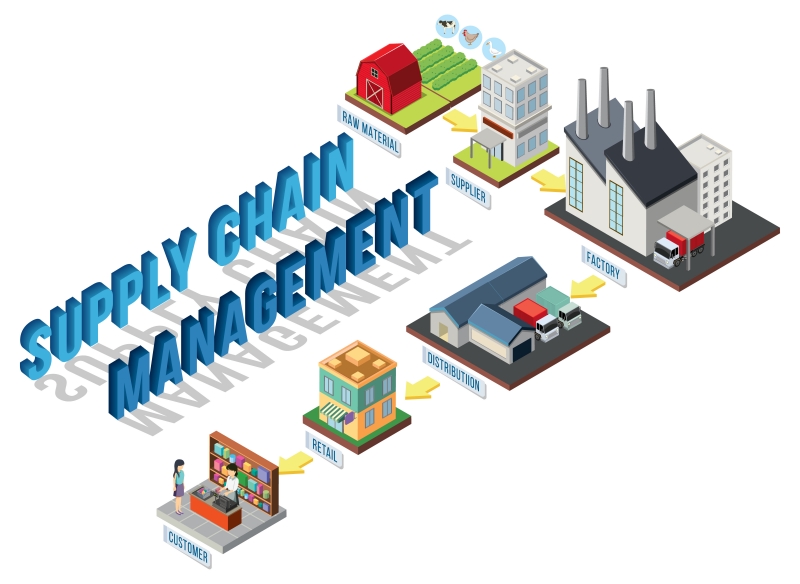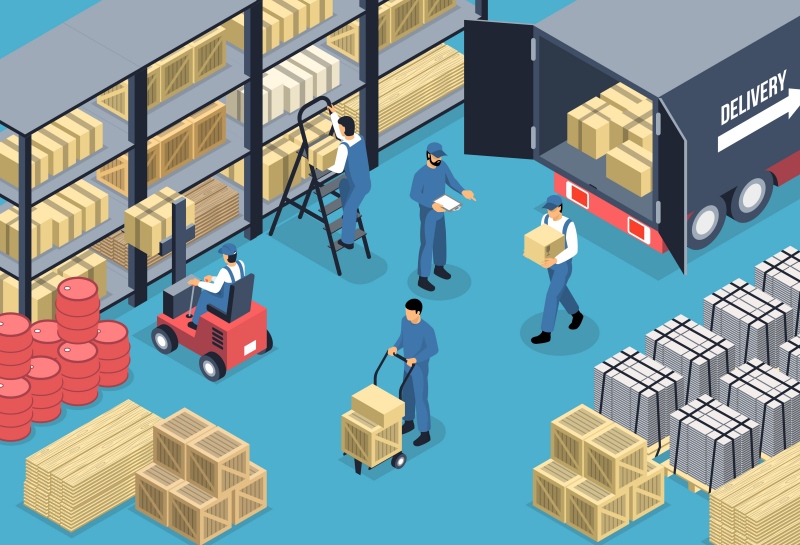Key Functions of Retail Supply Chain Management
Author: Celia| Keywords chosen by Celia
Retail is one of the most important industries in the world. It connects producers and consumers and is responsible for providing people with all the goods and services they need.
In the retail industry, supply chain management (commonly known as SCM) is considered the lifeblood of a company. It plays a vital role in ensuring the smooth functioning of activities in the retail cycle.
How does supply chain management impact the retail industry? This article explains the importance of SCM and its key functions in the retail industry.

What is retail supply chain management?
Supply chain management in retail is a method of handling the inbound and outbound logistics of goods, from raw materials to delivery of the finished product to the customer.
This includes overseeing the inbound and outbound logistics of all products sold by the retailer, including all links in the chain.

Why is retail supply chain management important?
Not only does a well-managed supply chain lead to increased profits but also helps retailers consistently anticipate and meet customer demand.
First, smooth supply chain management allows retailers to optimize supply-side functions, reduce costs, and operate more agilely. Second, efficient supply chain management allows retailers to get goods to customers faster, giving them a competitive advantage and building stronger customer relationships over time.
Key functions of retail supply chain management
1. Reduce costs
Effective SCM can help retailers significantly reduce operating, transportation, and storage costs in a variety of ways.
By optimizing supply chain operations, retailers can reduce waste, increase efficiency, and negotiate better prices with suppliers.

2. Attain competitive advantages
Retailers can also use their supply chain to gain a competitive advantage.
By analyzing competitors' supply chain strategies, retailers can take better steps to reach customers quickly.
In addition, when business operations run smoothly and timely adjustments and solutions are made to unexpected situations and failures, costs are saved and customer needs are better met.

3. Enhance customer experiences
Efficient supply chain management can help retail businesses meet customer demand, reduce stock-outs, and improve delivery times, which can lead to a better customer experience.
By providing customers with the products they want when they want them, Businesses can improve customer satisfaction and loyalty. In return, customers are more likely to return to your store.
When precise order fulfillment and prompt delivery are combined, customer happiness rises, fostering favorable evaluations. It additionally reduces the likelihood of clients being lost to competing businesses.

4. Optimize inventory
Inventory management is one of the highest costs for retailers, who must be able to predict market demand and maintain optimal inventory levels to meet that demand.
Optimization of the inventory at every stage of the supply chain allows retailers to understand any constraints that may arise, provides a seamless shopping experience for customers, and ultimately increases profitability.

5. Increase the agility of retailers
Agility can make the difference between short-term sales growth and long-term relevance in retail markets.
To respond to ever-changing supplier networks and constant fluctuations in market demand, retailers need to embed agility into their operations and plan for both the short and long term.
Increased agility also helps retailers respond quickly to changes in consumer preferences and market trends, capitalize on new opportunities, and gain competitive advantage.


 XIMIVOGUE Announces New Partnership in Libya
XIMIVOGUE Announces New Partnership in Libya
 Carry Your Fresh Start with These 6 XIMIVOGUE Lunch Bags
Carry Your Fresh Start with These 6 XIMIVOGUE Lunch Bags
 Upgrade Your New Year Style with XIMIVOGUE Claw Clips
Upgrade Your New Year Style with XIMIVOGUE Claw Clips
 Top 6 Greeting Cards You Need in Your XIMIVOGUE Basket This Year
Top 6 Greeting Cards You Need in Your XIMIVOGUE Basket This Year
 Enjoy The Unexpected Power of XIMIVOGUE Star Shaped Accessories
Enjoy The Unexpected Power of XIMIVOGUE Star Shaped Accessories




